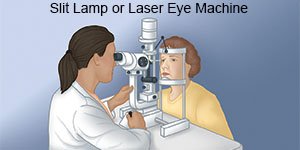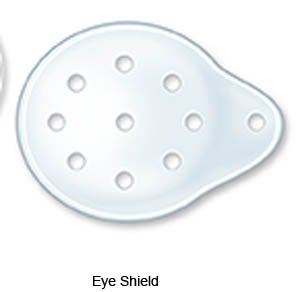Hyphema
Medically reviewed by Drugs.com. Last updated on Apr 6, 2025.
What is hyphema?
Hyphema is the presence of blood in the space between the cornea and the iris of your eye. The cornea is the clear layer that covers the front of your eye. It protects the iris (colored part of the eye) and pupil.
 |
What causes hyphema?
- Trauma, such as a blunt, pressure, or puncture injury
- Tumors
- Blood clotting disorders, such as hemophilia
- Medicines, such as blood thinners or NSAIDs
- Medical conditions, such as diabetic retinopathy or carotid stenosis
- Recent eye surgery
What are the signs and symptoms of hyphema?
- Sensitivity to light
- Blurring or loss of vision
- Eye pain
- Nausea and vomiting
- Blood in the bottom part of the eye
- Pupil that is abnormally shaped or looks different from the other eye
How is hyphema diagnosed?
Your healthcare provider will ask about your symptoms and examine your eye. You may need any of the following:
- Vision test: This test checks your vision, eye movement, and eye pressure.
- Blood tests: You may need to have your blood tested for health conditions that caused the hyphema, such as hemophilia.
- Slit-lamp test: This test uses a microscope with a strong light to look inside your eyes.

How is hyphema treated?
Hyphema usually goes away on its own. You may need any of the following:
- Medicines:
- Cycloplegics: This medicine relaxes your eye muscles and decreases your pain so your eye can heal.
- Steroids: These eyedrops help decrease inflammation.
- Eye pressure medicines: These help decrease eye pressure.
- Acetaminophen: This medicine decreases pain. It is available without a doctor's order. Ask how much to take and how often to take it. Follow directions. Acetaminophen can cause liver damage if not taken correctly.
- Nausea medicine may help calm your stomach and prevent vomiting.
- Surgery: You may need surgery if your eye pressure is high or your cornea stain does not go away. Your healthcare provider may rinse your eye and remove any clots. Your provider may drain the blood and replace it with a clear solution. You may need a small hole in your eye to drain any fluid that is causing pressure buildup.
What are the risks of hyphema?
Your vision may not return to normal. The pressure in your eye may increase to high levels (glaucoma). The cornea may be stained with blood and cause blurring of vision. You may also develop numbness or loss of vision. You may have more bleeding in the eye.
How can I manage my symptoms?
- Rest: Rest when you feel it is needed. Raise the head of your bed, or rest in a recliner. This will help decrease the pressure in your eye.
- Limit activity: Do not lift, bend, or strain. This will help prevent more bleeding.
- Wear an eye shield: This will help protect your eye from further injury while it heals. You may need to wear it all the time, even while you sleep. Check under the shield often to make sure your eye is clean and dry.

When should I contact my healthcare provider?
- You feel dizzy or lightheaded.
- Your eye is draining pus.
- You have questions or concerns about your condition or care.
When should I seek immediate care or call 911?
- You cannot stop vomiting.
- You have more blood in your eye after treatment.
- You have severe eye pain.
- Your vision gets worse.
- You suddenly have a loss of vision.
Care Agreement
You have the right to help plan your care. Learn about your health condition and how it may be treated. Discuss treatment options with your healthcare providers to decide what care you want to receive. You always have the right to refuse treatment. The above information is an educational aid only. It is not intended as medical advice for individual conditions or treatments. Talk to your doctor, nurse or pharmacist before following any medical regimen to see if it is safe and effective for you.© Copyright Merative 2025 Information is for End User's use only and may not be sold, redistributed or otherwise used for commercial purposes.
Further information
Always consult your healthcare provider to ensure the information displayed on this page applies to your personal circumstances.
